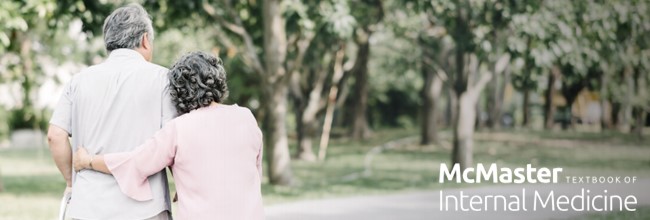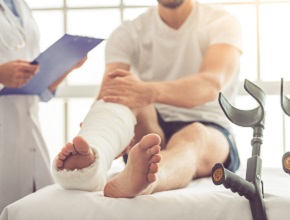Falls, defined as sudden and unintentional events in which an individual comes to rest on the ground, floor, or at a lower level than previously, have a large impact on morbidity, unintentional injury-related mortality, and health-care spending. It is estimated that 20% to 30% of adults aged ≥65 years experience ≥1 fall each year. Falls have significant physical and mental health implications for older adults, leading to the fear of falling, immobilization, isolation, depression, delirium, loss of independence, and transition to long-term care.

“To understand how individuals fall, it is important to have a basic understanding of normal gait. This is a complex skill requiring coordination and optimal functioning of one’s neurologic and musculoskeletal systems. Higher brain centers provide instructions for the timing and positioning of one’s limbs in space, as well as information for loading and unloading the body’s weight during normal gait. Postural reflexes are then involved in adjusting the trunk and limbs with each shift in support surface to maintain balance. These reflexes rely on input from the visual, vestibular, and proprioceptive systems. Moreover, cognitive function and attention are important for choosing a path and mitigating obstacles along that path. Thus, normal gait relies on the smooth integration of cognition, processing, neuronal networks, and musculoskeletal strength and tone.
With aging, various parts of this complex system change. For example, sensory input is diminished from visual, vestibular, and proprioceptive systems and postural reflexes are slower. In addition, there are changes in blood pressure regulation as we age, due to reduced vascular compliance and baroreflex sensitivity, which may increase the risk of orthostasis in older adults. Of note, disordered gait is not necessarily a component of natural aging and normal gait is maintained in many older adults.”
Mobile apps
The new chapters are easily accessible through our mobile apps for iOS and Android devices. The mobile apps are also regularly updated on the go to improve the general comfort of use and stability.
Feedback
If you have any suggestions or ideas, we are always happy to hear from you. You can always reach us at mcmastertextbook@piebm.org or contact@mcmastertextbook.com.
 English
English
 Español
Español
 українська
українська







